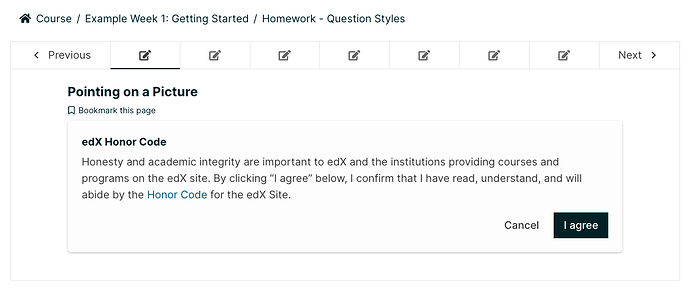Hi all,
We’re currently working on plans to revamp the way we inform learners that LTI tools in the courseware may receive personally identifiable information (PII) from the edX platform.
If you’re familiar with LTI, you know that if you configure PII sharing via LTI in a course, a learner will see a consent modal before they do an LTI launch that shares PII. Please see the picture below for the current version of the consent modal on Olive.
Please be aware that we recently made some changes to the consent modal, which will be merged into Olive soon. The modal has been replaced with an inline dialog. Please see the pictures below.
Inline
New Window or Modal
In any case, our plans are to replace this dialog, which occurs before every launch, with a dialog that appears once per course. It will implemented in the learning MFE. It will be rendered within a unit if a learner has not already agreed to the acknowledgment in the course. If you’re familiar with the Honor Code, it will function very similarly. In place of mocks for this particular acknowledgment, please see the Honor Code below to get a feel for what we’re doing. Copy for the LTI PII sharing acknowledgment is to be determined pending legal and privacy review.
We are wondering whether anyone in the community makes use of this LTI PII sharing consent dialog in the legacy courseware. Ideally, we’d like to deprecate old LTI PII sharing dialog that is implemented as part of the LTIXBlockConsumer in favor of the new MFE based one. But we’d like to hear your feedback! Thank you.




